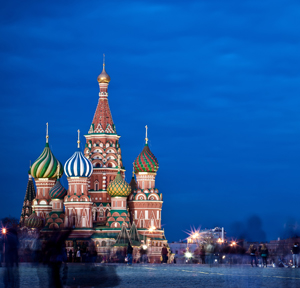Offshore
Expat Russian HNW Clients Shouldn't Panic Amid Diplomatic Deep Freeze

Private client advisors to Russian expats in the UK say such HNW individuals face tighter scrutiny amid worsening diplomatic relations but counsel against panic or knee-jerk reactions.
Russians in the UK face more scrutiny and authorities will use
new powers to hunt down tax miscreants. They should not
however fear a blanket clampdown on them all in the fraught
diplomatic environment, private client advisors say.
So far, the private client industry in the UK appears to be
adopting a cautious stance amid the dramatic events of recent
days, which have seen the UK accuse the Russian state of using
deadly nerve agents to try and kill supposed enemies.
The UK says it is highly probable that Russia attempted to
murder Sergei Skripal, 66, and Yulia Skripal, 33, in Salisbury
earlier in March. A police officer who was at the scene,
Detective Sergeant Nick Bailey, was left seriously ill; he was
released from hospital last Friday. The UK claims Russian
operatives used a form of poison; the affair has prompted anger
in the US and Europe. It is not the first time that people
connected with the former Soviet Union have been targeted in the
UK.
The saga has seen Russian-UK relations sink to new lows – Russian
president Vladimir Putin has scoffed at UK claims - raising
worries that wealthy Russian nationals residing in the UK face
increased hostility and legal hurdles.
“When tensions arise, views polarise and even 'regular' HNWs may
be viewed as being part of Putin's circle when the opposite
is true. Aside from possible public animosity, it may affect
their ability to do business as counterparties delay deals,
investments or contracts; until they understand the lie of the
land with sanctions and whether they (the Russian HNWs) are on
Putin's side or not,” Stephen Ross, head of the fraud team at
Withers, the
international law firm, said.
“Just as we are all connected to Russian state companies (and
their success) even if we don't know it – e.g. many of our
pensions will hold shares in BP which owns roughly 20 per cent of
Rosneft - so too many regular Russian HNWs are connected to
the success or failure of Russian companies, their investments,
or the professional services industry in London which depends on
Russian work whatever their views on the Putin regime may be,”
Ross said.
The situation is ironic as the UK has been a favoured destination
for wealthy expat Russians since the end of the Cold War. So much
so, in fact, that they have been sometimes blamed, along with
other groups of wealthy foreigners, of boosting residential house
prices outside the reach of locals, although arguably central
bank quantitative easing is the main culprit.
According to some estimates (Guardian, 2014), there are
upwards of 140,000 Russian-born persons living in the UK. The
phenomenon has even spawned nicknames for London
(“Moscow-on-the-Thames”, etc). Most of those persons are not
wealthy. However, a small but often prominent number are.
Many Britons are, for example, familiar with Russian oligarch
Roman Abramovic, owner of Chelsea Football Club. The UK’s
non-domiciled residency system has been used by such persons
down the years, although various recent administrations have
tightened rules. The UK also operates “golden visas” for high net
worth clients – its Tier 1 investor and entrepreneur visa
regimes. The UK increased the minimum required sum for an
investor visa to £2 million ($2.83 million) from the previous £1
million, taking effect from November 2014.
These, and other changes – such as removal of tax breaks on
foreign-owned property – appear to have cut inflows of wealthy
persons, including Russians, to the UK. In fact, the hike in Tier
1 Visa rates saw entrants using these routes fall from 1,172 in
2014 to 192 in 2015, according to Home Office data. With
enterprise visas, the numbers fell less sharply, to 918 from
1,087 over the same two years. The total number of Russians
getting UK visas – covering all wealth levels – also fell. In
2016, the latest year for which data is available, 116,983
Russians got UK visas, down 227,468 in 2013.
Explaining wealth
Concerns about how some émigré Russian citizens might have been
dodging taxes and taking illicit sources of income played a part
in the UK’s new system of Unexplained Wealth Orders, which kicked
in earlier this year. (UWOs have prompted concerns about
potential misuse.)
The UK already has robust rules to foil dirty money – some of the
toughest in the world - and the arrival this year of the
Unexplained Wealth Order system will only tighten the controls
yet further, Ashley Crossley, who heads the wealth management
department at Baker McKenzie in
London, told this publication.
“It would certainly not be fair to characterise the UK as a soft
touch for international money,” he said. “The idea that the
government, regulators and main players in the wealth management
industry do not take this issue extremely seriously is
mistaken. It may make good political headlines but it is far
from the truth,” he continued.
Crossley said there is a risk of people treating clients from
Russia as if they were all high-risk...”I think that situation
has been a while coming and it not fair or constructive. Many
Russians have come to the UK, made it their home and have
contributed to this country,” he said.
What sort of advice is Baker McKenzie giving to clients?
“Clients are being advised that if they have structures that are
not fully explainable to the authorities then they should get
their affairs in order and check that their wealth structures are
fit for purpose,” Crossley said.
Russian-born clients in the UK should not, for example, assume
that they only need to be clear and compliant on assets in the UK
and not about their offshore assets, he added.
